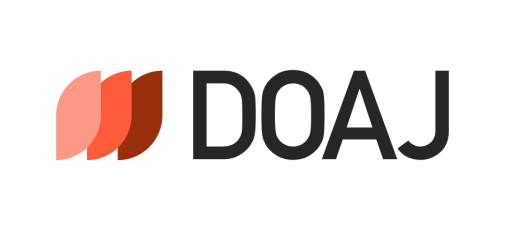Creative Solution Focused Counseling Models (CSFCM): Strategi Kreatif untuk Mengembangkan Self-regulated Learning Siswa
Abstract
Abstract: The study aimed to develop CSFCM to improve student self-regulated learning. CSFCM is an application of solution-focused counseling integrated with creative arts. The developmental research consisted of three stages: (1) identify the self-regulated learning level; (2) formulating a hypothetical draft of CSFCM to improve student self-regulated learning; and (3) conducting product feasibility testing by experts and practitioners. Data analysis technique used quantitative descriptive analysis. The results showed that the CSFCM which consisting five stages of counseling was categorized as feasible to be implement in the schools.
Abstrak: Penelitian ini bertujuan mengembangkan CSFCM untuk meningkatkan self-regulated learning siswa. CSFCM merupakan aplikasi dari konseling berfokus solusi yang diintegrasikan dengan seni kreatif. Penelitian pengembangan ini terdiri dari tiga tahapan yaitu: (1) identifikasi tingkat self-regulated learning; (2) merumuskan draft hipotetik CSFCM untuk meningkatkan self-regulated learning siswa; dan (3) melakukan pengujian kelayakan produk oleh ahli dan praktisi. Teknik analisis data menggunakan analisis deskriptif kuantitatif. Hasil penelitian menunjukkan CSFCM yang terdiri dari lima tahap konseling dikategorikan layak untuk diimplementasikan di sekolah.
Keywords
Full Text:
PDFReferences
Alfina, I. (2014). Hubungan Self-regulated Learning dengan Prokrastinasi Akademik pada Siswa Akselerasi. Jurnal Psikologi, 2(2), 227–237.
Banu, İ. (2013). The Relationship Between Self-regulated Learning Strategies and Academic Achievement in A Turkish EFL Setting. Educational Research and Reviews, 8(17), 1544–1550.
Bintoro, W. (2013). Hubungan Self Regulated Learning dengan Kecurangan Akademik Mahasiswa. Educational Psychology Journal, 2(1), 57–64.
Broadbent, J., & Poon, W. L. (2015). Self-regulated Learning Strategies & Academic Achievement in Online Higher Education Learning Environments: A Systematic Review. The Internet and Higher Education, 27, 1–13.
Charlesworth, J. R., & Jackson, C. M. (2004). Solution-Focused Brief Counseling: An Approach for Professional School Counselors. Dalam Erford, BT. Professional School Counseling: A Handbook of Theories, Programs and Practices. Austin, TX: Caps Press.
Christie, A. (2012). The Solution-focused Helper: Ethics and Practice in Health and Social Care. Taylor & Francis.
Cole, H. P., & Sarnoff, D. (1980). Creativity and Counseling. The Personnel and Guidance Journal, 59(3), 140–146.
Connie, E., & Metcalf, L. (2009). The Art of Solution Focused Therapy. Springer Publishing Company.
Corey, G. (2015). Theory and Practice of Counseling and Psychotherapy. Nelson Education.
Cowburn, J. (2003). The Solutions Focus. The Simple Way to Positive Change. Leadership & Organization Development Journal, 24(3).
De Shazer, S. (1985). Keys to Solution in Brief Therapy. Ww Norton.
Fajarwati, M. S. (2013). Peningkatan Prestasi Belajar Sejarah dengan Self-regulated Learning pada Siswa Kelas XI IPS di SMA Negeri 1 Banyudono Tahun Pelajaran 2012/2013. Candi, 5(1). 1–18
Fitch, T., Marshall, J., & McCarthy, W. (2012). The Effect of Solution-focused Groups on Self-regulated Learning. Journal of College Student Development, 53(4), 586–595.
Frels, R. K., Leggett, E. S., & Larocca, P. S. (2009). Creativity and Solution-focused Counseling for A Child With Chronic Illness. Journal of Creativity in Mental Health, 4(4), 308–319.
Gall, M. D., Borg, W. R., & Gall, J. (2003). P.(1996). Educational Research, An Introduction. Sixth Edition, Longman. New York.
Gillen, M. (2010). Solution-focused Therapy. Integrating the Expressive Arts into Counseling Practice: Theory-Based Interventions, 29.
Gladding, S. T. (1992). Counseling as An Art: The Creative Arts in Counseling. ERIC.
Gladding, S. T. (2016). The Creative Arts in Counseling. John Wiley & Sons.
Gladding, S. T., & Newsome, D. W. (2003). Art in Counseling. Handbook of Art Therapy, 243–253.
Jacobs, E. E. (1992). Creative Counseling Techniques: An Illustrated Guide. Psychological Assessment Resources.
Jannah, P. Z. W. (2015). Hubungan Self-Regulated Learning dengan Prestasi Belajar Siswa Kelas XI Di SMK Informatika Bandung. (Skripsi tidak diterbitkan) Universitas Islam Bandung, Bandung, Indonesia
Klassen, R. M., Krawchuk, L. L., & Rajani, S. (2008). Academic Procrastination of Undergraduates: Low Self-efficacy to Self-regulate Predicts Higher Levels of Procrastination. Contemporary Educational Psychology, 33(4), 915–931.
Kosnin, A. M. (2007). Self-regulated Learning and Academic Achievement in Malaysian Undergraduates. International Education Journal, 8(1), 221–228.
Leggett, E. S. (2009). A Creative Application of Solution-focused Counseling: An Integration with Children’s Literature and Visual Arts. Journal of Creativity in Mental Health, 4(2), 191–200.
Macdonald, A. (2011). Solution-focused Therapy: Theory, Research & Practice. Sage.
Matto, H., Corcoran, J., & Fassler, A. (2003). Integrating Solution-focused and Art Therapies for Substance Abuse Treatment: Guidelines for Practice. The Arts in Psychotherapy, 30(5), 265–272.
Nims, D. R. (2007). Integrating Play Therapy Techniques into Solution-focused Brief Therapy. International Journal of Play Therapy, 16(1), 54–68
Nurmalasari, Y. (2016). Konseling Singkat Berfokus Solusi dalam Mengembangkan Kemampuan Mengendalikan Compulsive Internet Use Siswa. EMPATI-Jurnal Bimbingan dan Konseling, 3(2), 1–16.
Pintrich, P. R., & De Groot, E. V. (1990). Motivational and Self-regulated Learning Components of Classroom Academic Performance. Journal of Educational Psychology, 82(1), 33–40.
Randick, N. M., & Gardner, E. (2015). Creating Connections: Using Art in School Counseling. The Therapist’s Notebook for Children and Adolescents: Homework, Handouts, and Activities for Use in Psychotherapy.
Savira, F., & Suharsono, Y. (2013). Self-Regulated Learning (SRL) dengan Prokrastnasi Akademik pada Siswa Akselerasi. Jurnal Ilmiah Psikologi Terapan, 1(1), 66–75.
Senecal, C., Koestner, R., & Vallerand, R. J. (1995). Self-regulation and Academic Procrastination. The Journal of Social Psychology, 135(5), 607–619.
Suryatama, M. D., Dharmayana, I. W., & Syahriman, S. (2014). Hubungan Self-efficacy dan Self-regulation Learning dengan Kecemasan dalam Menghadapi Ujian Nasional pada Siswa Kelas XII SMA Negeri I Ketahun (Disertasi tidak diterbitkan). Universitas Bengkulu.
Taylor, E. R. (2009). Sandtray and Solution-focused Therapy. International Journal of Play Therapy, 18(1), 56–68.
Trepper, T. S., Dolan, Y., McCollum, E. E., & Nelson, T. (2006). Steve De Shazer and The Future of Solution-focused therapy. Journal of Marital and Family Therapy, 32(2), 133–139.
Wolters, C. A. (2003). Understanding Procrastination from A Self-regulated Learning Perspective. Journal of Educational Psychology, 95(1), 179–187.
Wolters, C. A., & Hussain, M. (2015). Investigating Grit and Its Relations with College Students’ Self-regulated Learning and Academic Achievement. Metacognition and Learning, 10(3), 293–311.
Zimmerman, B. J. (2000). Attaining Self-regulation: A Social Cognitive Perspective. Dalam Handbook of Self-regulation (hal. 13–39). Elsevier.
Zimmerman, B. J. (2013). Theories of Self-regulated Learning and Academic Achievement: An Overview and Analysis. Dalam Self-regulated Learning and Academic Achievement (hal. 10–45). Routledge.
Zimmerman, B., & Schunk, D. (1989). Self-regulated Learning and Academic: Theory, Research, and Practice. New York: Springer Verlag.
Refbacks
- There are currently no refbacks.
Copyright (c) 2018 Wahyu Nanda Eka Saputra, Augusto Da Costa, Said Alhadi

This work is licensed under a Creative Commons Attribution-ShareAlike 4.0 International License.
Jurnal Kajian Bimbingan dan Konseling
ISSN 2503-3417 (online), ISSN 2548-4311 (print)
Email: jkbk.fip@um.ac.id
Find Jurnal Kajian Bimbingan dan Konseling on:
 This work is licensed under a Creative Commons Attribution-ShareAlike 4.0 International License |  |
View Visitor Stats







